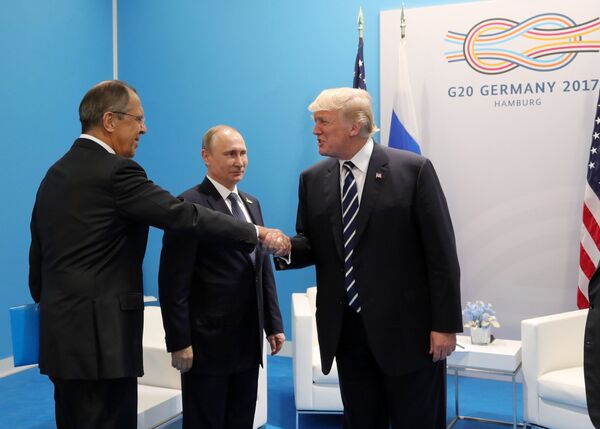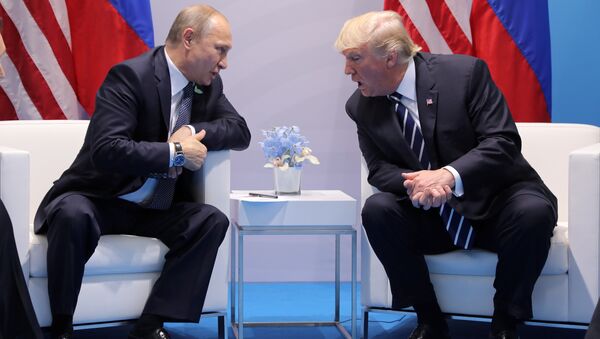Ahead of the first ever meeting between Russian President Vladimir Putin and his American counterpart Donald Trump at G20 summit in Hamburg the question on everyone's mind was whether the two leaders will reach common ground on Syria.
Interestingly, on July 5 US Secretary of State Rex Tillerson issued a statement on the current situation in Syria, adding that this topic would be raised during the Trump-Putin meeting.
"The United States and Russia certainly have unresolved differences on a number of issues, but we have the potential to appropriately coordinate in Syria in order to produce stability and serve our mutual security interests," the statement said.
These signals from the Trump administration were received with skepticism by some Russian observers.
"It is not the first time that Washington has declared that they are not against the Bashar Assad government. But at the same time (usually) it makes a lot of reservations," Bagdasarov told Radio Sputnik, adding that it's almost impossible that Washington will ever give up the idea of ousting Syrian President Assad.
For his part, Mikhail Roshchin, a Senior Research Analyst at the Institute of Oriental Studies of the Russian Academy of Sciences, expressed cautious optimism ahead of the two leaders' meeting.
"I hope that they [Putin and Trump] will still be able to [reach common ground]… Although, of course, the previous administration made lots of efforts to spoil the possible [US-Russian] cooperation [on Syria], there were a lot of dirty tricks [made by the Obama administration] at the last moment," Roshchin told Radio Sputnik.

"I still hope that we [Russia and the US] can launch a new positive dialogue. Therefore, of course, there are hopes for President Putin's meeting with President Trump, and for further talks between our Foreign Minister Lavrov and Secretary of State Tillerson. So I think there are chances. The question is, how much they will be used," Roshchin added.
Apparently, Roshchin's hopes will be fulfilled.
Following his talks with Donald Trump, Russian President Putin said that the position of the United States on Syria had become more pragmatic.
"As for Syria, we discussed this issue with all my interlocutors. Has the position of the United States changed or has not? I think it has become more pragmatic. Overall it has not changed, but there is understanding that by joining our efforts we can achieve many things," Putin said Saturday at the final press conference of the G20 summit in the German city of Hamburg.
The Russian president reiterated that the future of Syrian President Bashar al-Assad would be determined by the Syrian people regardless of the wishes of the US administration.
"[US Secretary of State Rex] Mr. Tillerson is an honorable man, he was awarded Russia's Order of Friendship. We respect him, but he is not a Syrian citizen. As of the future of Syria and future of President Assad as a political figure, the Syrian people should be the ones to determine it," Putin said, commenting on Tillerson's controversial remark that Assad "has no political future in Syria."
Commenting on the meeting between the leaders of Russia and the United States, prominent Italian political scientist Germano Dottori told Sputnik that he believes that "Trump really wants to cooperate with Putin, but he will have to do it with great care."
According to Dottorri, the two leaders are pragmatists in the first place.
"Trump wants to speak to the point because he is a very practical man, and Putin is also determined to find concrete solutions that should be adopted in the current situation… So we are speaking of two leaders who adhere to pragmatism and really believe in national interests, which means that they will by all means reach a consensus," the political scientist emphasized.





